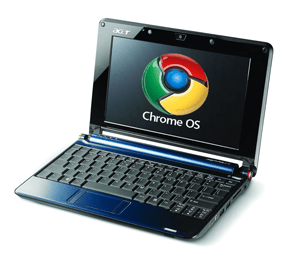
The company will team up with Intel on a $200-$250 light-weight netbook featuring either Google’s Chrome operating system or Android Honeycomb 3.0, according to a Digitimes report based on sources from an Asus components maker.
[aditude-amp id="flyingcarpet" targeting='{"env":"staging","page_type":"article","post_id":249404,"post_type":"story","post_chan":"none","tags":null,"ai":false,"category":"none","all_categories":"business,","session":"A"}']The line of netbooks, the report states, will target people seeking a low-cost device primarily for work or Internet browsing and is said to have a June 2011 launch date. Asus plans to ship six million in 2011.
With iPad 2 launch sales close to 1 million in its first weekend, it’s arguable that Asus’ netbook strategy is too late to make a large enough impact to translate into success.
AI Weekly
The must-read newsletter for AI and Big Data industry written by Khari Johnson, Kyle Wiggers, and Seth Colaner.
Included with VentureBeat Insider and VentureBeat VIP memberships.
A low price point is perhaps the biggest advantage netbooks have over tablets to stay competitive. At roughly half the cost of wifi-only versions of the iPad 2 ($499) and Motorola Xoom ($599), an Asus low-cost netbook could reasonably grab a portion of the market.
But while it might be cost-effective to use Chrome OS — which hasn’t been in the news much since Google launched its Chrome OS pilot program — Asus would still be going on the assumption that people will want to use it.
VentureBeat's mission is to be a digital town square for technical decision-makers to gain knowledge about transformative enterprise technology and transact. Learn More
